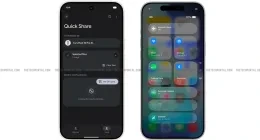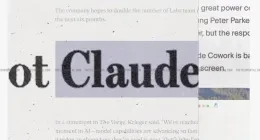With the criticism amassed by social networks (specifically Facebook) and search engines (prominently Google Search) for the spread of misleading stories during U.S presidential elections, the latter is now taking stringent actions to curb the same. Google is following Facebook’s lead and has today announced the expansion of its ‘fact check’ new initiative globally but has also brought in fact-checking organizations to help weed out fake stories.
First, Google started labeling verified articles using a ‘fact check’ tag in its popular news service back in September last year. The said verification was based on a claim review process and made available only in the U.S and U.K. This feature was then extended to even newer locations including Brazil, Mexico, and Argentina a couple months ago. This was a sign that Google was steadily beginning to understand and better its fact-checking process. But, it had never brought any external third-party into the verification process until date.
The ‘fact check’ label is no longer limited to certain markets and has today been expanded globally. Not only that, the fact checking is also making its way beyond the news service and will now be available in Google Search results as well. This feature is available in all languages across the globe. But, the significant addition to the feature (as already done by Facebook) is that search results will now be surfacing extra information from third-party news publishers and fact-checking organizations.
Further, Google continues to mention that it isn’t fact-checking the news sources itself but is relying on fact-checking websites such as PolitiFact or Snopes. Speaking on the same in the blog post, Justin Kosslyn, product manager, Jigsaw (an in-house idea incubator formerly known as Google Ideas) said,
For the first time, when you conduct a search on Google that returns an authoritative result containing fact checks for one or more public claims, you will see that information clearly on the search results page.
And as you can see above, the search results wouldn’t only highlight that the fact you’re searching is disputed on a particular link as Facebook does. Instead, Google is offering you the complete explanation for the story being termed as false by any of the partner organizations. It is because the tech giant believes that the claims may be same but the conclusions may be totally different. So, users should have access to every opinion.
These fact checks are not Google’s and are presented so people can make more informed judgements. Even though differing conclusions may be presented, we think it’s still helpful for people to understand the degree of consensus around a particular claim and have clear information on which sources agree.
Also, for those unaware, Google and Facebook have recently joined hands to further their fight against misleading and fake stories on the interwebs. The former has launched a collaborative news verification platform called CrossCheck, in partnership with First Draft News. The project is aimed at helping individuals better understand ‘what and who to trust in their social media feeds, web searches and general online news consumption.’ Facebook is a prominent part of this initiative and is providing partner newsrooms access to its recently acquired tool called CrowdTangle.
The Tech Portal is published by Blue Box Media Private Limited. Our investors have no influence over our reporting. Read our full Ownership and Funding Disclosure →







